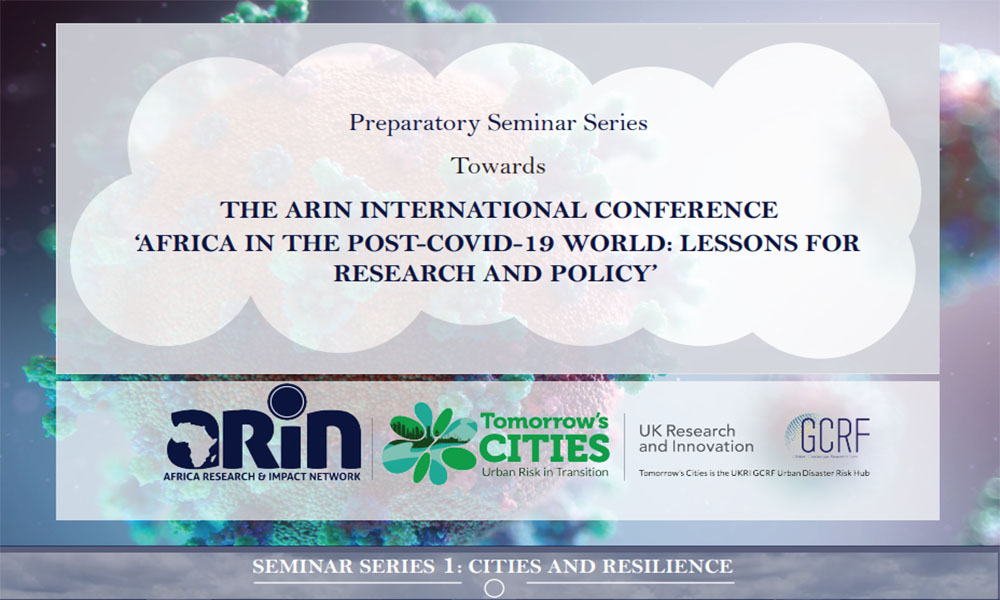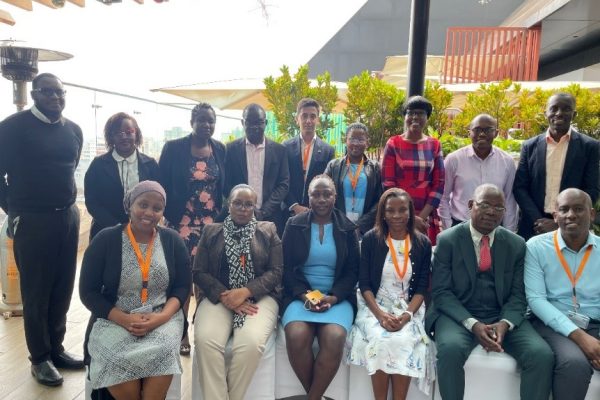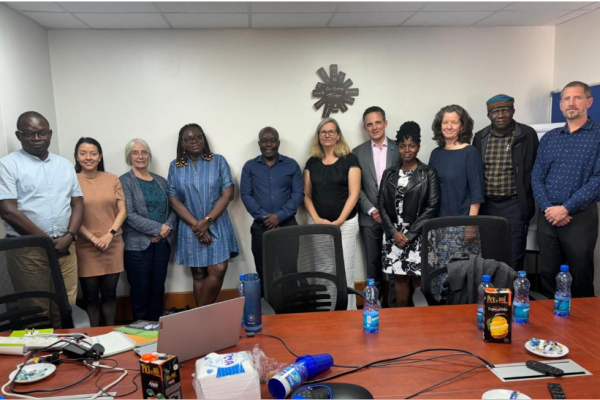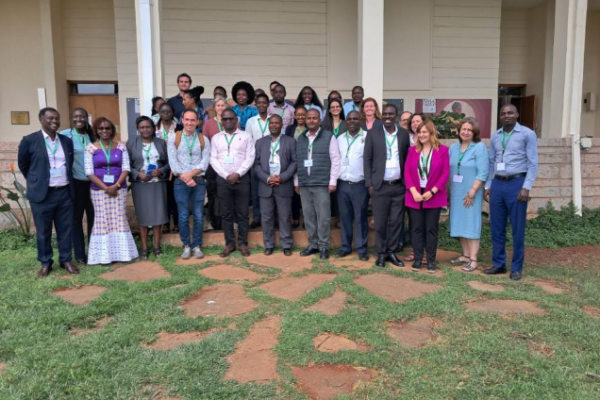On Thursday 3rd of September, 2020, The Africa Research and Impact Network (ARIN) hosted a webinar titled ‘Resilient African cities: beyond COVID-19’. This is the first in a series of webinars focused on building Africa’s resilience in the post COVID-19 world. The subsequent ones are; Science, Technology and Innovation; and Climate Action and Sustainable Energy. The two are scheduled for 25th September, 2020 and 30th October, 2020 respectively. The seminars are aimed at stimulating discussions and debate that will inform the upcoming Africa Research and Impact International Conference titled, ‘Africa in the Post COVID-19 World – Lessons for Research and Policy’ scheduled for 18th–20th November 2020. The overall output of the preparatory seminars and the conference is a book titled ‘Africa in the Post-COVID-19 World: Lessons for Research and Policy’ edited by Prof. Mark Pelling & Dr. Joanes Atela
The webinar brought together a wide spectrum of stakeholders from diverse fields of urban planning, policy and governance, transport, architecture, disaster risk management and resilience among others. The following outline set the scene for the discussions;
- The context of COVID-19 and African cities.
- How research can be used to influence resilience post COVID-19, with empirical evidence being drawn from the following 3 projects; A Systems approach to air pollution (ASAP), Governance of Socio-technical Transformation (GoST) and Nairobi Risk Hub (Tomorrow’s Cities; Urban risk in Transition), all implemented under the auspices of ARIN.
- Current trends in building resilience in African Cities and how researchers can respond to the impacts of COVID-19.
African cities account for over 50% of the regions GDP. Hence, they require the needed attention aligned towards sustainable development. Since the pandemic hit the globe, urban areas have been the epicenter of COVID-19. Measures that have been taken by various governance institutions to curb the virus spread, have escalated adverse social-economic shocks that the cities are already facing. The discussion which was moderated by Prof. Alfred Omenya (CEO, Eco-build Africa) was inclined towards bringing an understanding and review of the current perspectives of African cities. The aim was to highlight the potential social, ecological, technical, economic and political factors that would enhance resilience of the future African Cities.
Economic recovery constitutes an essential component post COVID-19. With the bulk of funds being directed to the health sector, financing for other equally important initiatives have been compromised. From the discussions, it was clear that vulnerability to COVID-19 in urban areas reawakens the social justice discourse. Since people make cities, it will be necessary to have a participatory governance system.
Participants pointed out that evidence-based planning and lesson learning could inform more prepared future African cities. The pandemic has shifted our thinking from single hazard management to a more integrated approach. However, there is need to first understand how African Cities have been evolving before finding solutions to their current vulnerabilities.
Despite the continued negative impacts of COVID-19, the pandemic is offering an opportunity to collectively rethink our African cities in regards to social, economic, political and environmental livelihoods, especially for the urban poor. With the right financing for re-building, COVID -19 pandemic will be a critical juncture for policy and development in building resilience of the future African cities as envisioned in the AU Agenda 2063; ‘The Africa we Want’.




